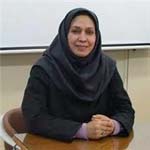Developing the Optimal Model of Curriculum Policy Making Process for Iran Education System (A Qualitative Study)
Policy-making seeks a better life for mankind and deals with the creative drawing of the future, in fact, future-making is the ideal of policymakers. One of the effective fields in macro-politics is the policies created in the field of the education system. Education is the most important tool through which the country achieves national growth, and it is one of the most necessary conditions for the principle of economic and social growth. The basic area where the education system and its policies are visible to the public is the curriculum and its policies. Curriculum is the essence of any type of education, which, in combination with effective teaching methods, guarantees the efficiency and effectiveness of the education system. Therefore, determining the optimal structure of the curriculum system and choosing and organizing the content have been among the preoccupations of education system policy makers. In order to succeed in their goals, the officials and administrators of education need a common discourse in the field of curriculum policy so that they can find the ability to face different situations and conditions in the society. Those who wish to develop curriculum must understand the broader issue of changes and institutions of power in policy formation. Research Question: what are the characteristics of the curriculum policy model According to the experts, for Iran education system?
This research is qualitative in terms of the type of data collection, and it has been carried out with conventional content analysis method. Data were collected through semi-structured interviews with 11 curriculum policy experts in the academic year of 2018-2019. The potential contributors consisted of academic professionals with curriculum policy experience. The participants were selected by snowball sampling. The research tool was a semi-structured interview based on the 5w1h technique. The content validity of the interview was confirmed by the opinion of five education experts. The data with coding, named, categorized and analyzed. The Maxqda-2018 software was used for the preliminary analysis of qualitative data. The findings were confirmed using the Lincoln and Guba evaluation method.
Through examining the findings, the model of curriculum policy for Iran education system was designed in three formal, technical and prudent dimensions and at three supra, macro and micro levels. The results showed that curriculum policy in Iran's education system has four policy-making components regarding curriculum goals, teaching and learning opportunities, policy content and policy evaluation. Based on experts' opinions, five levels with the presence of curriculum elements were proposed for the research model Taking into account the opinions of the interviewees, the following steps can be taken for curriculum policy-making in considered: (determining macro policies, strategies & visions), (issuing laws, strategies, policies & standards), (issuing instructions, regulations & circulars), (implementing policies at the school level), (comprehensive needs assessment, pathology), (curriculum executive policies and classification, prioritization, determining the impact of policies, creating a culture for implementing policies & repetition of the cycle).
The findings are consistent with the those of researches that emphasize the importance of determining specific standards and competencies in order to achieve curriculum goals. Also, studies that have given importance to the role of private companies in curriculum policy making and facilitating teacher-student discourse are consistent with the components of this model. According to the findings of the research, it is suggested to create a cyclical and active curriculum policy, a secretariat to monitor the implementation of policies in a network and a curriculum policy think tank with the aim of monitoring and improving policies. Creating an environmental framework and determining specific time periods for reviewing curriculum policies is also considered.
-
Designing and validating the sense of presence model in the learning management system of the E-Learning Center's Shahid Beheshti University
Soraya Khazai, Mahboobe Arefi *, Esmaeil Jafari, Azam Esfijani
New Educational Approaches, -
Foundations of Religious Ethics Education: Insights from the Perspectives of Al-Ghazali
Ali Mahdikhani, Mahboubeh Arefi *, Esmaeil Jafari
Foundations of Education,


